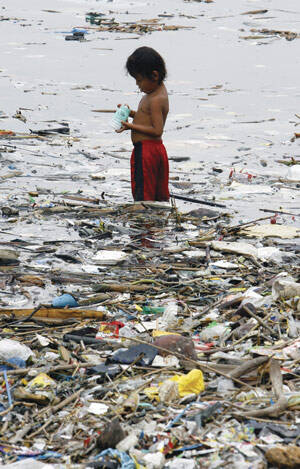Amid horn-blowing gridlock around the United Nations on Sept. 20, world leaders gathered to discuss progress or the lack thereof in achieving the Millennium Development Goals for cutting global poverty and combating hunger and disease by 2015. With five years to go, even keen supporters of the various M.D.G. initiatives acknowledged that the overall effort is behind schedule. Few donor nations have honored commitments to direct 0.7 percent of their gross national product toward the alleviation of global poverty.
A far smaller group assembled across the street at the U.N. Church Center to consider some of the same issues. Their opinions ranged from hopeful to bleak.
David Beckmann, a Lutheran minister and economist who is president of Bread for the World, was among the hopeful. He used the image of the exodus of the Israelites from their captivity in Egypt to describe a growing liberation from hunger throughout the world, of “God moving in our history.” He said reduction of hunger in nations as far flung as Bangladesh, Ethiopia, Brazil and Ghana make “what happened at the Red Sea look like small potatoes.” Nevertheless, goals remain unachieved, and therefore Americans, he said, need to push their congressional representatives to fund U.S. antihunger initiatives and to make its foreign aid program more effective.
Katherine Marshall of World Faiths Development Dialogues, called reduced poverty “a reachable dream.” But, she said, gender inequality still hinders efforts to mitigate global poverty.
War likewise can be a major factor in locking people into poverty. But Arthur Keys, chief executive officer of International Relief and Development, said that successful development work could continue even in conflict zones. His own organization has assisted farmers in Afghanistan, improving both the viability of their agricultural economy and their communal resistance to the Taliban.
Thomas Pogee, director of the Global Justice Program at Yale University, complained that the donor response to world poverty has been “ridiculous,” given the magnitude of the problem. One in three people dies of poverty-related causes, he said, citing corruption in developing countries as one of many barriers to reducing poverty. Rich countries also do harm by protecting their own products through restrictions on imports from poor nations. And making matters worse, the poor are often not at the table when decisions that affect them are made.
Melinda St. Louis, director of Jubilee USA, offered some evidence that stubborn unwillingness to accept defeat can transform antipoverty efforts. She spoke of the way faith-based groups came together in the mid-1990s to press for debt forgiveness as a tool for reducing poverty. Because of this initiative, over a million children in Tanzania were able to attend school, and hundreds of new classrooms were built in Ghana. She and her co-workers had been told when they began their efforts that debt relief was impossible.
In the end, though, the advocates for debt forgiveness convinced world leaders to move ahead on debt justice, which, despite successes, remains an unfinished project. Twenty very poor countries were “left out of debt relief deals, and inappropriate lending and borrowing has continued,” she said. But if there is still unfinished business, and, as Professor Pogee says, “large forces are at work against the poor,” so, too, there are good forces working for them.








